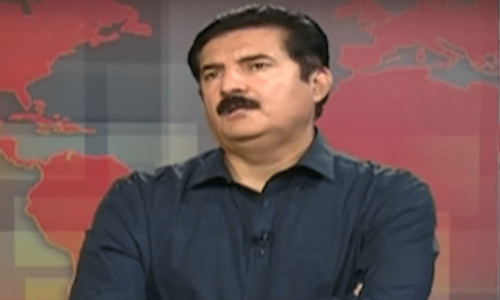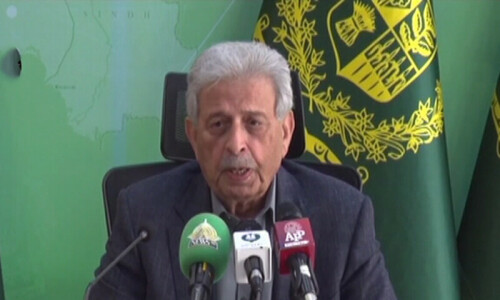ISLAMABAD: The government has stopped production of cheap gas from two major fields and drastically reduced production from a third one to ensure smooth flow of expensive imported liquefied natural gas (LNG) into the gas network facing capacity constraints.
A senior petroleum ministry official said gas production from the country’s oldest Sui field in Balochistan and Nashpa field in Khyber Pakhtunkhwa had been completely stopped, while that from the Qadirpur field in Sindh had been reduced by almost half. “The massive shutdown of over 327 million cubic feet per day (mmcfd) from domestic sources was unprecedented and necessitated by lower than committed off-take by the power sector,” he added.
The official said the reduction in indigenous gas supplies was made to run LNG Terminal-I at 690mmcfd, adding that production from Sui and Nashpa fields was reduced to zero from 185mmcfd and 85mmcfd, respectively, while that from the Qadirpur field to 88mmcfd from 145mmcfd.
Output from another drastically cut to ensure smooth flow of expensive, imported LNG into gas network
Even after this reduction, the line pack in the SNGPL (Sui Northern Gas Pipelines Limited) network is still running at about 4800mmcfd and RLNG consumption by the power sector is around 650mmcfd against the targeted 850mmcfd. The official said the power sector had been on average lifting 150mmcfd lower than its orders for almost two months. The SNGPL had booked these orders on a firm “take or pay” basis — meaning it has to pay for the commodity even if it is unable to utilise it.
On the other hand, the Pakistan State Oil (PSO) had been unable to discharge its RLNG cargo from Gunvor accordingly and is set to be hit by a $5 million penalty on Monday on a “take or pay” basis. The cost of domestic gas supply is currently less than $5 per mmbtu, compared to more than double the cost of imported LNG at around $11.
Gas companies and the PSO have been agitating the issue at the highest level for almost six weeks now. Interestingly, both the power and petroleum divisions are now under the administrative control of the energy ministry, led by federal minister Omar Ayub Khan and assisted by the prime minister’s adviser Nadeem Babar.
Earlier this month, the PSO and SNGPL had sought intervention of the energy ministry and the Prime Minister’s Office in resolving an issue involving safety of the gas network, financial costs to the national exchequer and international penalties, but without any outcome. The companies complained about lower than committed gas off-take by the power sector and warned of serious consequences.
The reduced gas consumption has resulted in increase in system pack which has reached 4925mmcfd on Aug 1 and then slightly reduced with the closure of domestic fields. The gas companies claimed that four major power plants — Haveli Bahadur Shah, Balloki, Bhikki and Kapco — were taking only 66 per cent gas against their own orders, while the entire power sector consumed about 630mmcfd against their allocations of about 830mmcfd.
The continued reduced consumption by the power sector and further packing would be a catastrophe not only for the system, but it might also jeopardise the entire RLNG supply chain, the SNGPL had said. It added that the “current level of system pack has resulted in increase in line pressures and red flags have risen across the network”.
The PSO had reported that it was being exposed to financial and credibility risks. “It is rather unfortunate that instead of improvement in the re-gasification rates, the situation is getting out of control now in terms of delays in cargo unloading, resulting in huge expected demurrages on all incoming cargoes”.
Sources in the Power Division said the power sector had committed 850mmcfd for August and utilised up to 90pc of those quantities in peak hours. They said the oil and gas companies should also have the flexibility to absorb 10-15pc gap in case of fluctuation in electricity demand. The problem, they said, was that the Petroleum Division had erroneously been assuming 1,130mmcfd allocation for the power sector against a firm written demand of 850mmcfd.
Moreover, power plants were hired on the basis of economic order, they said, adding that hydropower generation was now touching 7,500-8,000MW which was the cheapest and its utilisation could not be reduced because of rainy spell.
Published in Dawn, August 19th, 2019

















































